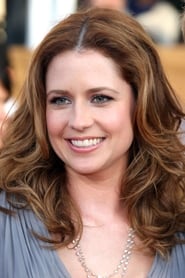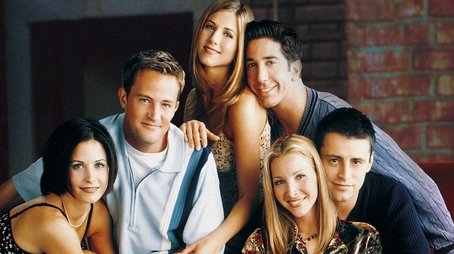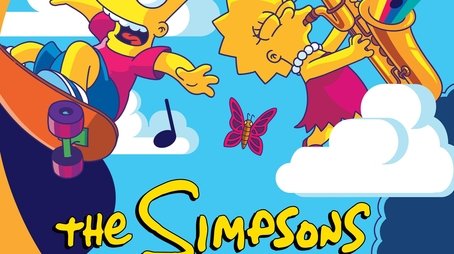
Ask Your Own Question
What is the plot?
The episode begins with a cold open featuring Michael Scott, the bumbling regional manager of Dunder Mifflin's Scranton branch, as he addresses the camera directly in a mockumentary style. He enthusiastically introduces himself and his role, attempting to convey a sense of authority and camaraderie. He awkwardly tries to impress the camera crew with his self-proclaimed status as a "friend first, boss second." Michael's attempts at humor fall flat, showcasing his lack of social awareness.
As the office day begins, we see various employees arriving. Jim Halpert, a salesman, is shown at his desk, where he playfully pranks his deskmate, Dwight Schrute, by placing Dwight's stapler inside a Jell-O mold. Dwight, a beet farmer and the assistant to the regional manager, is visibly annoyed when he discovers the prank. Jim's lighthearted demeanor contrasts sharply with Dwight's serious and competitive nature, setting up their ongoing rivalry.
Michael gathers the staff for a morning meeting, where he announces that the company is downsizing. The news creates a tense atmosphere, and the employees react with a mix of concern and disbelief. Michael tries to lighten the mood by making jokes, but his insensitivity only exacerbates the anxiety among the staff. He attempts to reassure them that their jobs are safe, but the uncertainty looms over the meeting.
Pam Beesly, the receptionist, is introduced as she interacts with Jim. Their chemistry is evident, and Jim expresses his feelings for Pam, who is engaged to another employee, Roy. Pam's internal conflict is palpable as she navigates her feelings for Jim while being tied to her fiancé. The dynamic between Jim and Pam is established as one of the central emotional threads of the series.
Later, Michael decides to hold a "Dundie Awards" ceremony to boost morale. He envisions it as a fun event, but the employees are skeptical. Michael's misguided enthusiasm leads to awkward moments, such as when he gives out awards that are often insulting or inappropriate. The ceremony highlights Michael's desperate need for validation and acceptance from his employees, despite their discomfort.
As the day progresses, Dwight's competitive nature comes to the forefront when he challenges Jim to a series of office games, including a paper airplane contest. Jim's playful attitude contrasts with Dwight's intense focus on winning. This rivalry culminates in a humorous showdown that showcases their contrasting personalities and sets the tone for their ongoing conflict.
The episode also features a subplot involving Michael's attempts to connect with his employees on a personal level. He awkwardly tries to engage with them during lunch, but his efforts are met with indifference. This highlights Michael's loneliness and desire for friendship, which he often misinterprets as being liked by his staff.
As the day comes to a close, Michael's attempts to reassure the staff about their job security continue to fall flat. The employees are left feeling uncertain about their futures, and the tension in the office remains palpable. Jim and Pam share a moment of connection, hinting at the potential for a deeper relationship, while Dwight remains oblivious to the dynamics around him.
The episode concludes with Michael reflecting on the day's events, still oblivious to the discomfort he has caused. He expresses hope for the future of the branch, despite the looming threat of downsizing. The camera captures the mixed emotions of the employees as they leave the office, setting the stage for the complex relationships and challenges that will unfold throughout the series.
🔥 Trending TV Shows Now
Browse All TV Shows →What is the ending?
In the ending of "The Office" Season 1, Episode 1 titled "Pilot," the employees of Dunder Mifflin are left with a mix of emotions after a day filled with awkward interactions and the introduction of their new documentary-style work environment. Michael Scott, the bumbling regional manager, attempts to connect with his employees but often misses the mark. The episode concludes with a sense of uncertainty about the dynamics of the office, particularly between Jim Halpert and Pam Beesly, who share a flirtatious moment, and the awkwardness of Dwight Schrute, who is eager to impress Michael but often finds himself at odds with his coworkers.
As the episode draws to a close, the camera captures the employees in their mundane office setting, highlighting their individual quirks and relationships. Michael's misguided attempts at humor and leadership leave the staff feeling bemused, while Jim's playful demeanor and Pam's shy smiles hint at a deeper connection that may develop in future episodes. The final moments leave viewers with a sense of curiosity about how these characters will navigate their work lives and personal relationships moving forward.
As the episode begins to wind down, the camera pans through the Dunder Mifflin office, capturing the various employees as they settle into the rhythm of their day. Michael Scott, the regional manager, stands in front of the camera, attempting to deliver a motivational speech. His enthusiasm is palpable, but it is met with a mix of eye rolls and awkward glances from his staff. Michael's desire to be liked and to foster a fun work environment is evident, yet his lack of self-awareness often leads to uncomfortable situations.
In one corner of the office, Jim Halpert is seen at his desk, exchanging playful banter with his coworker, Pam Beesly, the receptionist. Their chemistry is undeniable, and as they share a laugh over a prank Jim pulls on Dwight Schrute, the assistant to the regional manager, the camera captures the warmth of their connection. Jim's playful nature contrasts sharply with Dwight's serious demeanor, creating a comedic tension that permeates the office atmosphere.
As the day progresses, Michael attempts to engage his employees in various team-building exercises, but his efforts often fall flat. He tries to create a sense of camaraderie, but instead, he inadvertently highlights the divisions among the staff. Dwight, eager to impress Michael, takes his role too seriously, leading to moments of cringe-worthy humor that leave the others feeling uncomfortable.
The episode culminates in a scene where Michael gathers everyone for a final meeting. He tries to rally the team, but his speech is filled with awkward jokes and misguided attempts at motivation. The employees exchange glances, their expressions a mix of confusion and amusement. Michael's desire to be seen as a friend rather than a boss is evident, but it only serves to alienate him further from his team.
As the meeting concludes, Jim and Pam share a moment that hints at a deeper connection. Jim leans over to Pam, and they exchange a knowing smile, suggesting that their relationship may evolve beyond mere coworkers. Meanwhile, Dwight, oblivious to the dynamics around him, continues to assert his authority in a way that only alienates him from the rest of the team.
The episode ends with a montage of the employees returning to their desks, the camera lingering on their faces as they reflect on the day. Michael stands in the foreground, still trying to maintain his upbeat demeanor, but the uncertainty in the air is palpable. The final shot captures Jim looking at the camera with a smirk, hinting at the playful and often chaotic journey that lies ahead for the Dunder Mifflin team.
In this closing scene, the fates of the main characters are left open-ended. Michael remains the well-meaning but misguided boss, Jim is the charming prankster with a potential love interest in Pam, and Dwight is the overzealous employee who struggles to fit in. The episode sets the stage for the evolving relationships and conflicts that will define the series, leaving viewers eager to see how these characters will navigate their lives in the office.
Is there a post-credit scene?
In the pilot episode of "The Office," there is no post-credit scene. The episode concludes with the main storyline wrapping up, focusing on the dynamics of the Dunder Mifflin office and introducing key characters such as Michael Scott, Jim Halpert, Pam Beesly, and Dwight Schrute. The episode ends without any additional scenes or content after the credits roll.
What is the significance of Michael Scott's management style in the pilot episode?
In the pilot episode of The Office, Michael Scott's management style is characterized by his desperate need for approval and his desire to be liked by his employees. He often tries to inject humor into the workplace, but his attempts frequently backfire, leading to awkward situations. For instance, he holds an impromptu meeting to announce that he is the 'World's Best Boss,' showcasing his need for validation. His lack of professionalism and understanding of boundaries sets the tone for the series and highlights his role as a flawed but well-meaning leader.
How does Jim Halpert's relationship with Pam Beesly develop in the pilot?
In the pilot episode, Jim Halpert's relationship with Pam Beesly is introduced as a complex dynamic filled with unspoken feelings. Jim is shown to have a crush on Pam, who is engaged to another employee, Roy. Their interactions are filled with playful banter and subtle glances, indicating Jim's affection for Pam. He often plays pranks on Dwight Schrute, which Pam finds amusing, creating a bond between them. This foundation of friendship and unrequited love is crucial for their character arcs throughout the series.
What role does Dwight Schrute play in the office dynamics during the pilot?
In the pilot episode, Dwight Schrute is portrayed as the overly ambitious and eccentric assistant to the regional manager. His intense dedication to his job and his competitive nature are evident when he tries to assert his authority over Jim and often engages in bizarre behavior, such as his beet farming background. Dwight's character serves as a foil to Jim's laid-back demeanor, creating a comedic tension that drives many of the show's early plot points. His interactions with Michael also highlight the absurdity of office hierarchies.
What are the key moments that establish the character of Ryan Howard in the pilot?
Ryan Howard is introduced in the pilot episode as a temp who is new to the office. His character is established through his interactions with Michael Scott, who treats him as a confidant and often seeks his approval. Ryan's discomfort with Michael's antics, such as the awkward 'Dundie Awards' and Michael's attempts to befriend him, showcases his role as the outsider in the office. His initial reluctance to engage with the established office culture sets the stage for his character development throughout the series.
How does the pilot episode depict the office culture at Dunder Mifflin?
The pilot episode of The Office vividly depicts the office culture at Dunder Mifflin as a mix of mundane routines and quirky personalities. The setting is characterized by cubicles, a break room, and the constant presence of Michael's misguided attempts at humor. The employees exhibit a range of reactions to Michael's leadership, from Dwight's unwavering loyalty to Jim's sarcasm and Pam's quiet resignation. The interactions among the staff, including the awkwardness of meetings and the camaraderie during breaks, create a relatable and humorous portrayal of everyday office life.
Is this family friendly?
The Office, Season 1, Episode 1 ("Pilot") is generally considered family-friendly, but there are a few aspects that might be objectionable or upsetting for children or sensitive viewers.
-
Workplace Humor: The episode features humor that revolves around office dynamics, which may include awkward situations and misunderstandings that could be uncomfortable for some viewers.
-
Character Behavior: Michael Scott, the regional manager, displays a lack of professionalism and makes inappropriate jokes that could be seen as insensitive or cringeworthy.
-
Romantic Tension: There are hints of romantic interests and awkward flirtations, particularly involving characters like Jim and Pam, which may not be suitable for younger audiences.
-
Mild Language: There are instances of mild language and innuendos that might not be appropriate for all viewers.
-
Social Dynamics: The portrayal of office relationships and the sometimes harsh realities of workplace interactions could be upsetting for those sensitive to themes of exclusion or bullying.
Overall, while the show is comedic and light-hearted, these elements may warrant consideration for younger or more sensitive viewers.














